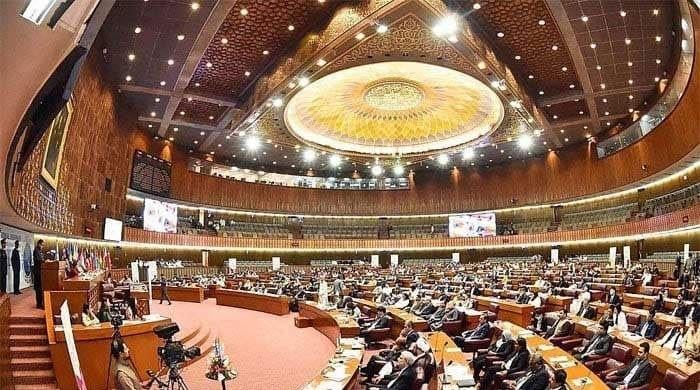Forward blocks: What does the Constitution say?
MPs can be booted out if they resign, join another party, and vote or abstain from voting contrary to directions from their political party
July 15, 2019

Initially, the 1973 constitution was silent, strangely, on party switching or defection from one political party to another.
In order to address the gaping hole, the government of the day added clause 63 A to the constitution in 1997. The clause, at first was sketchy on details. It failed to list down the conditions under which a member of the parliament can be disqualified for jumping ship, which is why it was amended in 2003 and then again in 2010.
As per the clause now, reproduced below, a member of the parliament can be booted out if she/he resigns, joins another party and votes or abstains from voting contrary to the directions from his political party.
If that happens, the party head can report him/her to have defected. The report would be sent to the Election Commission of Pakistan, who would then disqualify the parliamentarian.
Clause 63 A
Disqualification on grounds of defection, etc.-(l) If a member of a Parliamentary Party composed of a single political party in a House—
(a) resigns from membership of his political party or joins another Parliamentary Party; or
(b) votes or abstains from voting in the House contrary to any direction issued by the Parliamentary Party to which he belongs, in relation to—
(i) election of the Prime Minister or the Chief Minister; or
(ii) a vote of confidence or a vote of no-confidence; or
(iii) a Money Bill or a Constitution (Amendment) Bill;
he may be declared in writing by the Party Head to have defected from the political party, and the Party Head may forward a copy of the declaration to the Presiding Officer and the Chief Election Commissioner and shall similarly forward a copy thereof to the member concerned:
Provided that before making the declaration, the Party Head shall provide such member with an opportunity to show cause as to why such declaration may not be made against him.
Since the conditions were restrictive, explains Ahmed Bilal Mehboob, PILDAT’s president, in a video message posted on the think-tank’s website, the clause was amended when the 18th amendment was introduced in the parliament.
Under the amendment, the reasons for disqualification were specified, says Mehboob. Members of the national assembly who did not vote as their party did, on matters such as the election of the prime minister or the chief minister, in a vote of confidence or a vote of no-confidence and in matters of money bills or a constitution (amendment) bill, could now be served a show cause notice by the party head.
"The current clause 63A is much more balanced," explains Mehboob.
"It sets six conditions for the disqualification of a member of the national assembly. There is a perception that members who defect can make a forward block in the House and the defection clause will not apply to them. That is not true."











